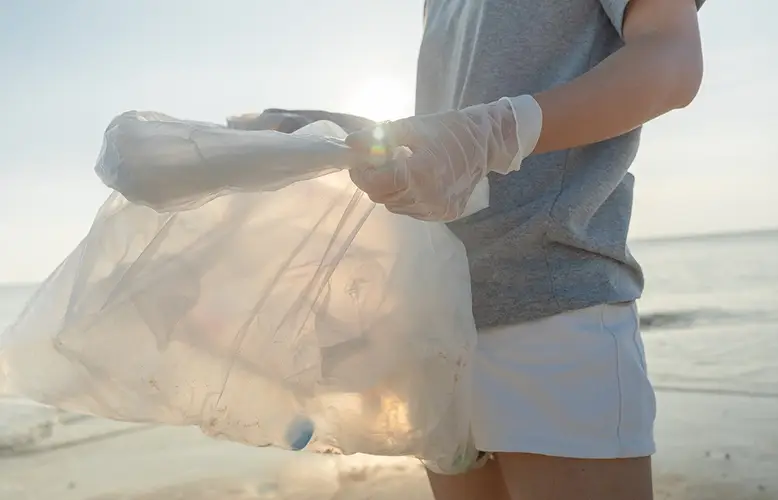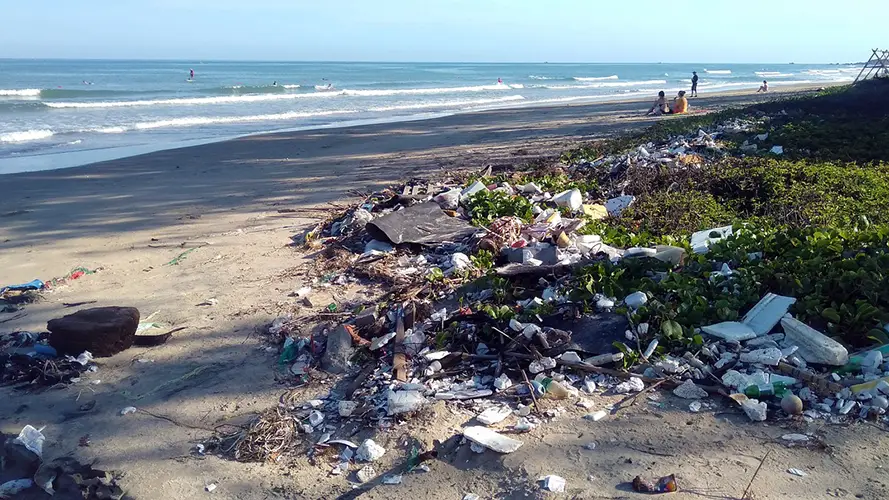The world’s oceans are our most extensive shared resource, home to an array of life so diverse, yet so interdependent. Unfortunately, the human presence has taken a significant toll on the sanctity of these waters. Ocean pollution is a dire issue that must be remedied, for it not only disrupts the delicate marine ecosystems but also impacts the quality of life for all species, including our own. It’s a monumental task, but one that begins with each of us, taking steps, no matter how small, to reduce our ecological footprint. In this comprehensive guide, we’ll unravel the various facets of ocean pollution and arm you with the tools and knowledge you need to contribute to ocean conservation. From understanding the root causes of marine pollution, such as plastic waste and toxic chemicals, to exploring actionable ways you can help, we’ll set you on a path toward making a positive difference in the fight to protect our oceans.

Understanding Marine Pollution
Mankind’s relationship with the ocean is as old as civilization itself, but the scale and negative impact of our waste are relatively recent phenomena. Marine pollution encompasses many types of contaminants, including oil spills, plastic debris, and industrial and agricultural waste. These pollutants can enter the ocean due to direct dumping or through rivers and the atmosphere. The impact is staggering, with marine animals at risk of entanglement, ingestion, and poisoning.
The Dangers of Plastic
Plastic waste is one of the most pervasive forms of ocean pollution. When dealing with ocean pollution, single-use plastics are particularly insidious, with their use-and-toss lifecycle. Items like straws, bottles, and bags comprise a significant portion of the estimated 5.25 trillion pieces of plastic debris in the ocean. They break down into microplastics, further complicating cleanup efforts and endangering marine life.
Toxic Chemicals: A Lethal Brew
Industrial and agricultural processes introduce a variety of chemicals into the ocean. These can be very toxic, resulting in severe health impacts on marine life and, eventually, humans who consume seafood. Understanding the types of chemicals, including heavy metals and persistent organic pollutants, is key to combating their introduction into the ecosystem.
The Impact of Pollution
The harm that ocean pollution causes is not limited to marine animals. It has far-reaching consequences that affect all life on the planet. The pollution of the oceans results in habitat destruction, species extinction, negative health effects, and disrupts economic activities such as fishing and tourism. The well-being of the world’s oceans is intrinsically tied to the health of the global ecosystem.
A Ripple Effect
Pollution is not contained within the ocean. What we do on land directly impacts the sea. For instance, runoff from agricultural fields carries pesticides and fertilizers into the ocean, leading to harmful algal blooms. This ‘deadly’ tide then impacts local marine life and can lead to hypoxia, and low oxygen levels that can suffocate entire ecosystems.
Economic and Social Impacts
The consequences of marine pollution extend to the economies of coastal communities, particularly those reliant on fishing and tourism. The depletion of fish stocks, beach closures due to pollution, and the degradation of coral reefs hit local livelihoods hard. The long-term economic and social costs can be devastating, contributing to environmental injustice and poverty.
Actionable Ways to Combat Ocean Pollution
The enormity of ocean pollution can make it seem like an intractable problem, but there is a myriad of ways for individuals, organizations, and governments to take action. Here are some practical measures that can make a real difference in safeguarding our marine environments.
Reduce Your Disposable Plastics
When dealing with pollution, the best defense is a good offense, and that means cutting down on the use of disposable plastics. Simple actions like carrying a refillable water bottle, using reusable bags, and saying no to plastic straws can significantly reduce your plastic footprint. Engaging in coastal and beach cleanups can also help in the removal of existing plastic waste.
Advocate for Sustainable Practices
Beyond personal actions, advocating for broader policy changes and corporate responsibility is crucial. Support legislation that bans single-use plastics, promotes responsible waste management, and regulates the discharge of pollutants. Encourage businesses to adopt sustainable practices and products, and hold them accountable when they don’t.
Support Conservation Initiatives
Many organizations and initiatives are dedicated to the conservation of the oceans. Support them through donations, volunteer work, or simply spreading the word about their efforts. Conservation groups play a vital role in research, education, and advocacy, working towards long-term solutions to marine pollution.
Educating the Next Generation
An often overlooked strategy in the battle against marine pollution is education. Teaching our children about the importance of oceans and the consequences of their pollution can instill the values that will lead to a more sustainable future.
Integrated Learning
Includes marine pollution and conservation in school curricula at all levels. Lessons can be incorporated across subjects, including science, geography, and civics, to provide students with a holistic understanding of the issue. This approach fosters critical thinking and empowers young people to take informed action.
Experiential Learning
Learning by doing can be incredibly impactful. Field trips to coastal areas, visits to aquariums, and participation in ocean conservation projects can bring the reality of marine pollution close to home, inspiring a sense of responsibility among students.
Implementing Innovative Solutions

Innovation can be a powerful tool in the fight against marine pollution. Both technological and systemic advancements can lead to cleaner oceans and a healthier planet.
Technological Breakthroughs
Research and development in fields like biodegradable materials, waste-to-energy technologies, and ocean cleanup systems are yielding promising results. Supporting these endeavors can bring about the breakthroughs necessary to combat marine pollution effectively.
Systemic Change
Beyond technological solutions, systemic changes are needed to address the root causes of ocean pollution. This can involve reimagining our approach to waste management, transitioning to a circular economy, and rethinking the types of materials we use and discard. Such changes require leadership from governments, businesses, and civil society.
The task of protecting our oceans against pollution is vast, but through collective action, we can make a substantial difference. Each one of us has a role to play, from reducing our personal plastic use to advocating for policy change. By understanding the causes and impacts of marine pollution, taking actionable steps to combat it, and fostering innovation and collaboration, we can ensure that the world’s oceans remain a source of life and wonder for generations to come.





